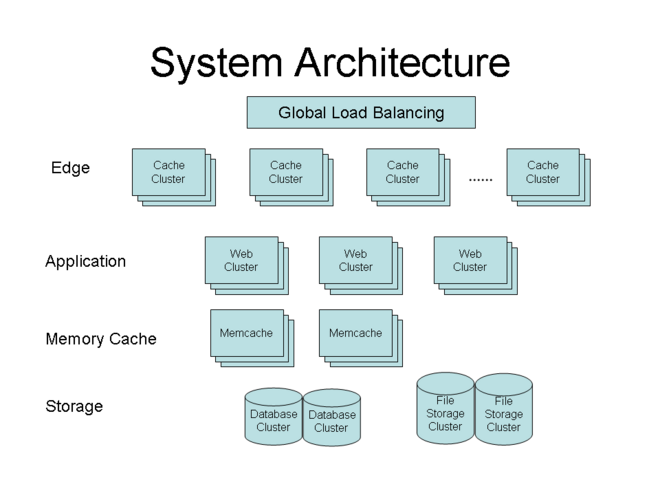Difference between revisions of "Building Scalable Network Services"
m (→References) |
(→Architecture) |
||
| Line 4: | Line 4: | ||
== Architecture == | == Architecture == | ||
| + | |||
| + | The general system architecture of scalable network service is illustrated in the following figure: | ||
| + | |||
| + | [[Image:Sns-system-architecture.png|center|660px]] | ||
== Load Balancing == | == Load Balancing == | ||
Revision as of 14:32, 5 April 2007
Contents
Introduction
The human society has been entering a network-centered information era, in which users need access faster, more reliable and functional network services. The increasing popularity of the World Wide Web leads to an exponential growth in the Internet usage. More and more network sites have attracted traffic at an unprecedented scale, they often worry about how to scale up their systems over time to meet this increasing demand, and how their systems remain 24x7 available. Future applications will need higher throughput, interaction and security, which requires service platform provide more processing power and higher availability. Therefore, there is a need to provide a feasible framework and some design methodologies for constructing high-performance, highly scalable and highly available network services.
Architecture
The general system architecture of scalable network service is illustrated in the following figure:
Load Balancing
Cache Layer
Application Layer
Persistent Data Layer
Conclusion
References
- LiveJournal's Backend: A history of scaling
- Wikimedia's (Cache) Network, http://www.nedworks.org/~mark/presentations/hd2006/
- Wikipedia network ideas, http://www.aulinx.de/oss/code/wikipedia/
- Scalable PHP with phpa, memcached and LVS (Part 1)
- Scalable PHP with APC, memcached and LVS (Part 2)
| |
"Building Scalable Network Services" is a technology related stub. You can help LVSKB by expanding it |
